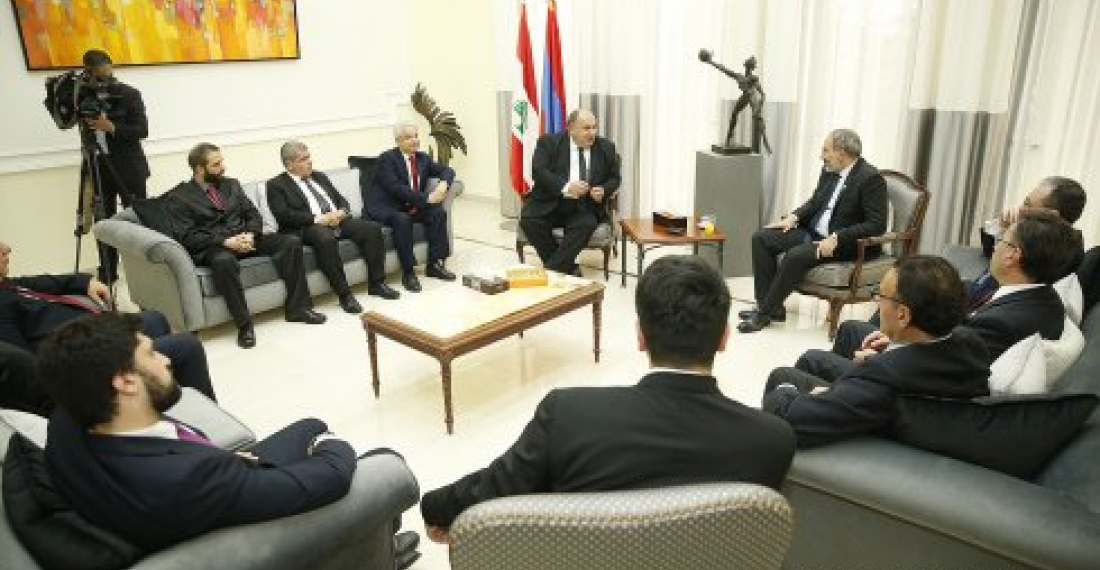Armenian prime minister Nikol Pashinyan visited Lebanon over the weekend during which he had meetings with Lebanese president Michael Aoun, Prime Minister Saad Harriri and Parliamentary Speaker Nabih Berri.
Equally important for Pashinyan however were the meetings he held with leaders of the influential Armenian community in Lebanon. The well-organised community is considered part of Lebanon's ethnic mosaic, and has a number of MPs allocated to it in the Lebanese parliament.
Significantly, Pashinyan also met with representatives of Armenian political parties in Lebanon, including the influential Armenian Revolutionary Federation (Dashnaktsutyun).
The prime minister's web site later said that "Nikol Pashinyan attached importance to the meeting with the traditional Armenian parties in Lebanon in terms of Armenia's development, Armenia-Diaspora-Artsakh rapprochement and discussion of issues on the pan-Armenian agenda. He underscored his special attitude towards the Armenians and youth of Lebanon, thanking them for their support and active position during the velvet revolution."
The website added that the "Representatives of the traditional Armenian political parties highlighted the importance of Nikol Pashinyan's visit to Lebanon, noting that it would contribute to the strengthening of relations between the two countries and peoples. They welcomed the changes in Armenia as a result of the velvet revolution in Armenia and conveyed to Nikol Pashinyan the readiness of Lebanese Armenians to support programs aimed at strengthening Artsakh and Armenia as well as deepening the Armenian-Lebanese multifaceted ties."
Among those attending the meeting in Beirut were representatives of the Armenian Revolutionary Federation (Dashnaktsutyun). The Armenian branch of the party which had a small faction in the outgoing Armenian parliament, played an ambivalent role during the political turmoil of last spring. The influential Lebanese branch of the ARF is considered important in setting the agenda on political issues among diaspora Armenians, and Pashinyan would have used the Beirut meeting to seek their support for his policies, both domestic and external, going forward.
source: commonspace.eu
photo: Nikol Pashinyan meeting leaders of so called "traditional" Armenian parties in Lebanon during an official visit to Beirut on 20 October 2018 (picture courtesy of the press service of the Government of Armenia).







